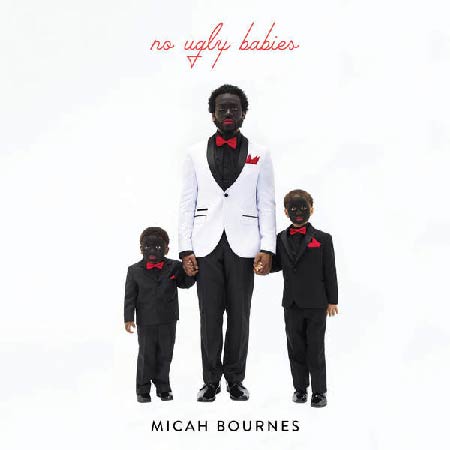Micah Bournes’ creative mind manifests
“No Ugly Babies” brings out a bigger message about race.

hiphopstoners.com
November 30, 2016
Micah Bournes grew up in Long Beach, Calif. listening to hip-hop. He never wrote as a child nor did he create music or spoken word. After his departure from Long Beach, he made his way to Chicago, graduating from college with a media communications degree from a Bible Institute in Chicago. Bournes’ creativity surfaced shortly after his graduation, which opened new doors to poetry, music and spoken word. Like many children growing up in the ‘90s, a love for streetwise hip-hop grew in Bournes. Bournes became a hip-hop artist, but later switched to the blues. “No Ugly Babies” sprouted from this transition.
Subversive imagery
When Bournes released the cover and date in October, his fans wanted an explanation of the album cover. The cover displays Bournes holding two children’s hands with their face painted black, which raised many questions in regard to his intentions. After leaving fans on the edge, Bournes posted a long explanation on Facebook of what exactly the cover meant. The Minstrel Shows became the main idea behind Micah Bournes’ cover art. He reflected back on the Minstrel Shows and how they mocked black people, portraying them as people that could never become beautiful.
As time passed, many African Americans believed if they dressed in their “Sunday best” every day and spoke properly they could be treated equal, but the exact opposite actually happened. This gave the second reasoning behind Bournes’ choice of clothes for the album cover, as Bournes and his nephews were seen in tuxedos. The album name came from Bournes’ mother, as Bournes stated, “My mother always said, ‘God ain’t gave me no ugly babies, all my daughters is pretty and all my sons is handsome.’” With so much thought and effort put into the cover, the music had to meet the expectations and it did.
Racial frustration
Micah Bourne’s “No Ugly Babies” consists of 13 tracks, beginning with “I Don’t Pay No Mind” and ending with “Happy As Can Be.” Almost instantly, Bournes has a vintage feel to him comparing to Leon Bridges, which many misinterpret as an early ‘90s singer. Track two, “No Ugly Babies,” reveals how Bournes feels about being black, using a metaphor with the Disney movie “Snow White.”
His lyrics reveal his frustrations of how white is the only skin color seen as beautiful, as he sings, “Mirror, mirror on the wall, this skin here ain’t fair. Life ain’t been no fairy tale and ain’t nothin’ been fair. Ain’t no shame in losing in a race for vanity. Hammer to your looking glass. My momma said to me, ‘God ain’t gave me no ugly babies.’” Not only does this album portray imagery behind his creativity, but it brings to surface a bigger message. Micah Bournes contributed to the blues music genre, while still keeping his faith as a Christian. Micah Bournes has become an upcoming artist to keep an eye out for because of the message conveyed through his music and outstanding lyrics.






